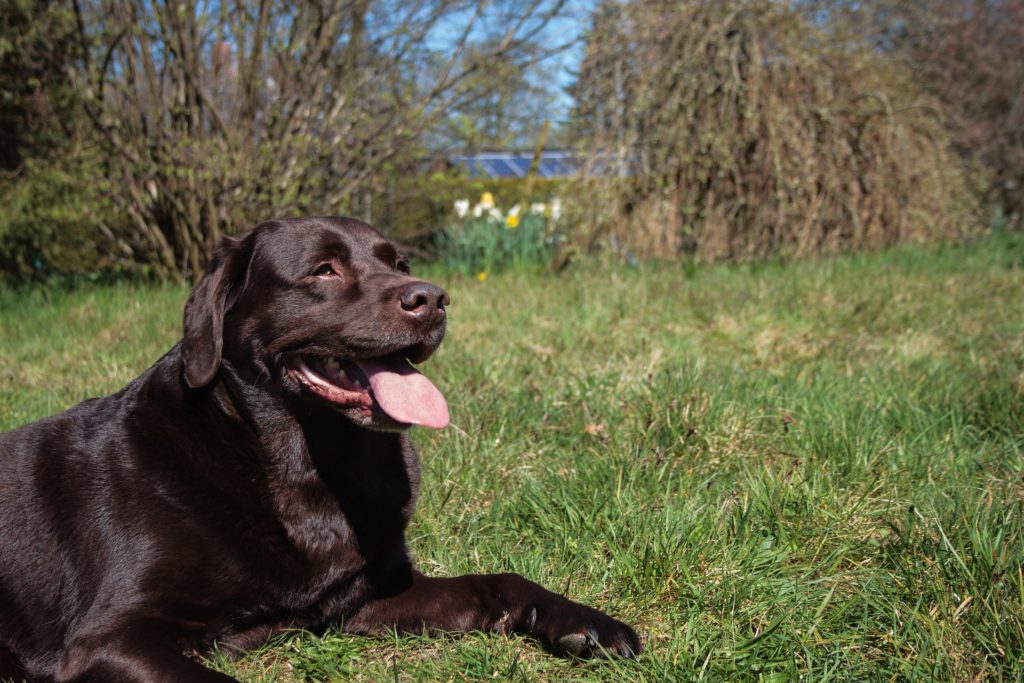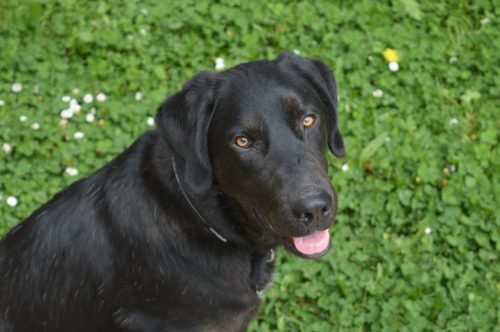It’s a general consensus that Labrador Retrievers make wonderful family pets. In fact, Labrador Retrievers are the most popular dog breed for families. What makes a good family dog? Temperaments and needs that align with the family’s.
Determining factors that make a ‘good family dog’ is relative to the owner’s preferences and living conditions. This article will cover the temperament and needs of Labrador Retrievers so you can decide if they will make a good family pet for you.
Labrador Retriever Temperament
A common breed temperament does not ensure every dog of that dog breed will be this temperament, it’s just more likely. If you want to be cautious you can administer your own temperament assessment on dogs 5 months and older to make sure you’re bringing home a dog with the right temperament for your household. Here are some of the common Labrador Retriever temperaments that make them great family dogs.
Low Aggression
Labrador Retrievers are known for being one of the least aggressive dog breeds towards owners, strangers, and other dogs.
This is great news for a household with children! Accompanied with their naturally high energy, kids can play with this breed for hours without tiring the Labrador Retriever one bit.
Outgoing
Are you looking for a dog that will protect your home? The outgoing nature of Labradors will not make a good guard dog.
Labrador Retrievers are more likely to greet a burglar than to bite them. They tend to form bonds with everyone they come in contact with, which is great for a family setting.
Even-Tempered
Many children new to pets tend to pull and climb on dogs without thinking of the dog’s reaction to these behaviors. Luckily, it’s pretty difficult to upset a Labrador Retriever and this goes hand in hand with Labrador Retriever’s low aggression. This also means your Lab will be pretty open and friendly to meeting other fellow pets.
Kind & Gentle
Kindness is a bit difficult to define, but Labrador Retrievers are considered to be ‘kind’ due to the fact that tend to be very affectionate and empathetic to their owner. Labradors over the age of three are fairly gentle in nature. Keep in mind, younger Labradors are a bit rambunctious and clumsy which may pose a small problem for toddlers or elderly that have problems balancing.
Intelligent
Labs are very trainable, they are historically considered a ‘working’ breed, they were used as retrievers for hunters and fisherman. Now they are the number one breed used as guide and rescue dogs. Regardless, Labrador Retrievers are easy to train and willing to learn. This has a downfall though, they can become bored if not stimulated enough.
Labrador Retriever Needs
Finding a dog with the right temperament is only half the battle. Dogs have needs and if you can’t fulfill those needs your dog will be unhappy and an unhappy dog does not make a good family dog.
Exercise
Labs are a very active breed, during the first three years they will need about two hours of robust exercise daily. Often regular walks will not be enough for this breed, they need to do activities such as playing fetch or swimming.
Without burning off all that excess energy the Labrador may begin to act out by chewing up things around the house and digging holes in the backyard to get out.
With this amount of energy, small homes or apartments are not recommended for this breed.
Getting a dog is a big commitment, make sure your whole family is on-board and work out a doggy-play plan with your family during the first couple months until the Lab gets comfortable in your home.
Owning a Labrador Retriever can be a great way to spend some quality family time on the weekends by going to the park, hiking, or even camping.
Grooming
Although their short coat is easy to manage, Labrador Retrievers tend to shed a lot twice a year and during shedding season regular canine grooming is necessary. Brushing and occasional baths are needed to keep this breed’s hair in check and out of your house. If shedding is an issue, than a Lab is not for your family.
Labrador Retriever’s temperaments can be described as low aggression, outgoing, kind, gentle, even-tempered, and intelligent. They don’t make good guard dogs but, they’re great with children. If you have small children or elderly in your home, keep in mind puppy Labs can be clumsy.
It’s best for Labs to live in a medium to large home with a backyard and get a lot of daily exercise. Last but not least, Labradors shed. So take all this information into consideration and decide if a Labrador Retriever is best for your family.





